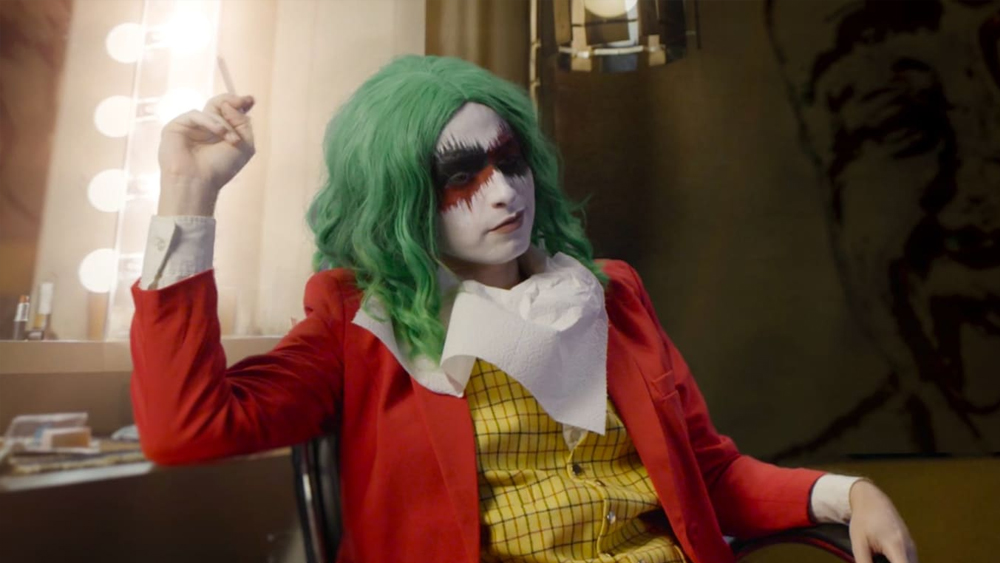
Although her tastes largely align with subversive voices like Eric André and Sacha Baron Cohen, Todd Phillips’ 2019 box office hit “Joker” captivated alt-comedian Vera Drew.
“Warner Bros. made a Batman movie about class struggle, the mental health crisis, the fact that our city structures and government systems are completely failing,” she said.
Although she notes that some audiences could have seen the moral of the story as “white men, disenfranchised men are being put down,” she took away different ideas.
“I related to it as a trans woman,” she said. “My family system failed me. My government is still failing me constantly, and for some reason, I still have to pay them taxes next month. I related to that core element of just wanting to make art and put myself out there. How can I do that in a system that is so rigidly gatekept and so much of it is just an arm of propaganda?”
Drew took that motivation and made a wholly original and subversive feature with “The People’s Joker,” which opens in theaters Friday. She stars as Joker the Harlequin, a young trans woman who flees a small town to try to make it in the comedy world. The film is filled with characters parodying Batman mainstays — The Penguin, Ra’s al Ghul, The Riddler, Mr. Freeze and many more — adding a superhero dimension to this coming-of-age story.
In Hollywood, Drew cut her teeth working on productions from alt-comedy idols like André, Nathan Fielder, Tim Robinson, Scott Aukerman, Sacha Baron Cohen and Tim and Eric — largely editing projects that necessitated specific timing to make the offbeat humor hit perfectly. Yet helping these comedians perfect their voices only pushed Drew to further sharpen her own.
“Whenever I did stand-up, I was always in a dress — and this was before I came out,” she said. “I was a straight man that would do drag constantly. Comedy was this safe space for me to explore this stuff. But it also kept me in this space of being ironic. I kind of reached this peak ‘irony poisoning’ in 2019, where I realized I needed to process not only coming out as a trans woman in alternative comedy, but how this informed my identity, and might have informed some false ideas about who I was.”
As a lifelong Batman fan, Drew — who directs, co-wrote, stars in and edited “The People’s Joker” — knew she could tell her story by remixing iconic DC Comics characters under the umbrella of parody and fair use, despite some bumps during its 2022 festival season rollout. Those heroes and villains represented far more to her journey than just gracing the pages of comic books.
“The power of these characters is as modern myth,” she said. “Myth belongs to the people, and it’s about creating a reflection of yourself inside of these big, grand, bold, colorful archetypes, so that you can understand your role and place in society. It’s a fandom that I share with some people who have very different political and social ideas than I have.”
When asked if some comic book fans might be hesitant to see their beloved characters interpreted in “The People’s Joker,” Drew considers how she’s even stirred up complex feelings in the trans community. Yet she feels like the complexity is a perfect conversation starter for modern America.
“It’s well-intentioned allies that I see who will say, ‘Why would you make the Joker a trans woman? Do you think that’s a good role model? How could you make a queer villain during a time like this, when we need stories put out there in a light that shows us positively?’ For me, it’s like I’m a villain. I am villainized and politicized and I’m turned into a symbol, just because of my identity. Some people think that just because I was assigned a gender at birth that doesn’t match me, and then embraced that, I’m somehow a political activist or a symbol of their oppression. To me, I could only make a movie about a queer villain at this point in my life, because I’m completely villainized and my community is completely villainized. So it was important to me to do that.”



